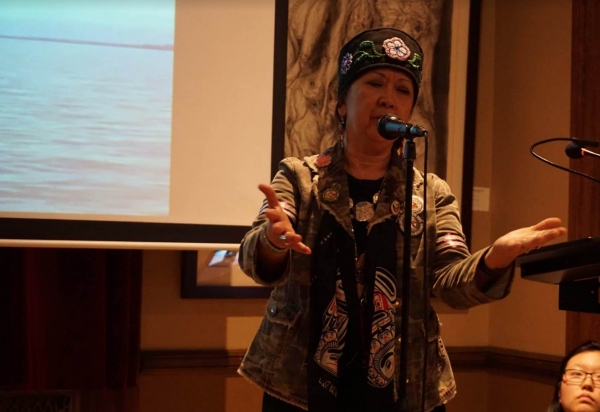McGill Nurses for Global Health hosted a panel of indigenous healthcare professionals and community members on Jan. 17 to discuss the importance of integrating indigenous understandings of health into care.
Megan Eaker, a McGill Nursing master’s student and woman of mixed Cree and European ancestry, opened the event by offering concrete steps that healthcare professionals can take to better serve indigenous communities. She emphasized the importance of making room for ceremony and spirituality in healthcare. At the same time, she also implored healthcare professionals to understand the diversity of indigenous cultures within Canada as well as the vast continuum of cosmologies within a single nation. Her arguments may appear obvious, considering that there are over 600 distinct indigenous nations in Canada, but, nonetheless, Eaker lamented that a conversation about indigenous diversity is frequently excluded from modern Western medicine.
Involving indigenous culture in healthcare is one way to sustain traditional ways of knowing, but the approach is complex given how variable the different cultures are. However, different First Nations face the similar challenges of displacement, colonialism, and genocide.
“We cannot talk about indigenous health without [referring to] land and colonialism,” Jessica Barudin, indigenous health advocate and program manager of the Indigenous Health Profession Program, said. “We can’t understand indigenous health without understanding politics.”
Colonial violence and the ongoing systemic oppression of indigenous peoples in Canada have disrupted the traditions of health and wellness which previously existed in indigenous communities. As a result, reconnecting with culture, land, and spirituality is often a necessary process in indigenous health.
Cheryl McDonald, a matriarch and grandmother of the Wolf Clan of Kanien’kehá:ka, addressed the need for healing beyond the physical. McDonald recalled how the traumatic experience of her sister disappearing left physical, mental, emotional, and spiritual wounds. She also recounted her own path to advocacy for the Missing and Murdered Indigenous Women and Girls organization. In reflecting on her trauma, McDonald emphasized that a return to her culture was an important part of her healing process as an indigenous woman.
“Reconnecting to nature and the elements is the purest form of healing,” MacDonald said.
Otsits (aken:ra, a respected elder and faith keeper of the Kanien’kehá:ka (Mohawk) community of Kahnawá:ka, closed the event by speaking about how spirituality has shaped healing within his own community.
“In everything in this Earth, there is medicine,” Patton said. “It is us who have forgotten the healing. The Earth is our mother, not something we buy or sell.”
Patton highlighted the importance of integrating diverse indigenous knowledge into healthcare. Modern medicine defines health according to the biopsychosocial model, which considers biological, psychological, and social factors of being healthy, as well as their interactions. However, this model excludes spiritual health and, consequently, the comprehensive health needs of many indigenous populations are not met.
All of the speakers agreed that healthcare professionals have a responsibility to advocate for spirituality in wellness and also consider the deeply-politicized nature of indigenous identity. They called for healthcare that combats, not furthers, colonial violence.









